Bangladesh
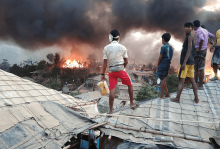
Mainul Islam, a freelance photographer specializing in street photography, lives in a Rohingya refugee camp in Bangladesh. This interview was conducted by Sojourners' Jenna Barnett in December and January via WhatsApp.
I STARTED TAKING photos because I want to tell the stories of our Rohingya people’s struggle.
I was born in 1994 in a Rohingya refugee camp in Bangladesh. I have been living in the camp for about 28 years. [It] is known to the government of Bangladesh as the Registrar Refugee Camp. The Bangladesh government has police, Ansar members, and an executive magistrate to control the camp. There are various NGOs, but we are not getting any good service from them. I don’t think of it as a camp. This is a detention center. Educational institutions have been closed for four years. We are not getting the basic rights that a human being needs to survive. The rejection of citizenship rights for Rohingya, denial of freedom of movement, eviction campaigns, violence against women, forced labor, expulsion from their lands and property, violence and torture have made Myanmar’s ethnic Rohingya the most persecuted minority in the world.
There is a barbed wire fence around the Rohingya camp. That’s why we are always trying to create joy inside the camp with sports, festivals, and weddings. We are playing football, volleyball, cricket, chinlone, etc. There are mosques and madrasas in the Rohingya refugee camps, and they go there to practice their faith.
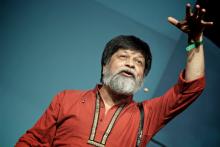
This is not the first time a South Asian activist has been punished for speaking out against the government. Southeast Asia has some of the largest democracies in the world, and yet under the current climate, every voice of defiance is pegged as a coup, or a smear campaign. There have been countless activists, journalists, and others who speak up that have been relentlessly targeted.
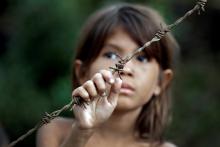
The refugees drowned in heavy seas off Bangladesh late on Thursday, part of a new surge of people fleeing a Myanmar military campaign that began on Aug. 25 and has triggered an exodus of some 502,000 people.
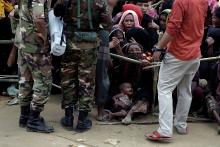
Myanmar regards the Rohingya as illegal immigrants from Bangladesh and bouts of suppression and violence have flared for decades. Most Rohingya are stateless.

At a solemn ceremony in St. Peter’s Basilica, to elevate 17 new cardinals, Pope Francis, on Nov. 19, delivered a ringing plea to the world, and his own Catholic Church, to reject “the virus of polarization and animosity," and the growing temptation to “demonize” those who are different.
The pontiff’s address came across as a powerful, gospel-based indictment of the populist and nationalist anger roiling countries around the world, displayed most recently by the stunning election of Donald Trump as president of the U.S.
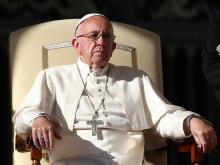
These new cardinals include prelates from 11 dioceses and six countries that have never before had a cardinal, and from places far outside the traditional European orbit of ecclesiastical influence: Albania, for example, plus the Central African Republic, Lesotho, Mauritius, Bangladesh, Malaysia, and Papua New Guinea.
But the real surprise in these picks, as in past appointments, is that they came as a complete surprise to many of the new cardinals themselves, and to the pope’s closest collaborators.
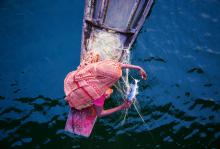
In the wake of Jim Yong Kim’s visit to the country, the World Bank’s future efforts should provide for coordinated global efforts to cope with climate change, especially to help those who live in areas most vulnerable to extreme weather. Future efforts should also provide research in agriculture, funding in education and health facilities, and directions to establish clear labour laws to regulate the booming industrial sector.

The killings of two Hindus, one Christian, and the wife of an anti-terror official in Muslim-majority Bangladesh last week have left members of minority religious communities afraid for their lives and skeptical of the government’s ability to provide security.
Separate targeted attacks on Hindus, Christians, Buddhists, and atheists have left the country reeling. On top of the violence, some churches have received death threats from Islamist militants.
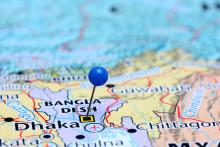
U.S. Embassy worker Xulhaz Mannan was murdered April 21 in Dhaka, Bangladesh's capital, according to the U.S. State Department.
Local reports say Mannan and another man were hacked to death. There is some suspicion this violence was provoked by Mannan's LGBT activism.

Right now, a contentious debate over religious freedom is tearing at the social fabric of a nation, and partisans seeking to take advantage of the uproar are fueling the fires of mistrust and division.
But I’m not talking about the U.S. and arguments over contraceptive mandates and same-sex marriage. (And I’m certainly not talking about red coffee cups!) This struggle for religious freedom is taking place in Bangladesh, and the “debate” is being waged not with words and laws, but with machetes and terror.
In the past eight months, five people have been hacked to death by Islamic extremists associated with terror groups such as Ansar Bangla and al-Qaida. Each victim was targeted for writing or publishing works that advocate for secular democracy and criticize religion and fundamentalism. Many other writers have been injured in these attacks.
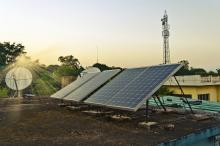
ONE OF THE most destabilizing facts of the last five years is this: The price of a solar panel has fallen 75 percent. The engineers have done their job, and that offers many possibilities.
We usually look at what the developed countries are doing with renewable energy, such as the fact that there were days during summer 2014 when Germany was generating three quarters of its power from solar panels (Germany!). But the most amazing miracles—and it doesn’t really stretch the word “miracle”—are happening in the poorest places, where for the very first time lights are blazing on.
Take rural Bangladesh, where fossil fuel has barely penetrated in the 200 years of its ascendancy in the West. There’s no grid—at night it just goes dark. Until the last few years, when low-cost solar panels and innovative financing arranged by groups such as the Grameen Bank have allowed the very rapid spread of solar panels. How rapid? As many as 80,000 new connections a month, which is far more than in the United States. Fifteen million Bangladeshis live in solar-powered houses already, and the government is hoping to have the entire nation hooked up by 2020.
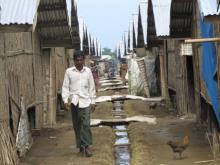
At the end of a three-day tour, the Saudi-based Organization of Islamic Cooperation told Buddhist-majority Myanmar to repeal “laws restricting fundamental freedoms” after more than 240 Muslims were killed by Buddhist mobs during the past year.
Before the OIC delegates left Myanmar on Saturday, they visited minority ethnic Rohingya Muslims who fled the violence and are now living in squalid camps along the border with Bangladesh in Myanmar’s Arakan state, also known as Rakhine.
Headed by Secretary General Ekmeleddin Ihsanoglu, the OIC delegation called on the government to continue legal reforms, The New Light of Myanmar newspaper reported.

Muslims in Pakistan, Bangladesh, and elsewhere went online to buy live cows and goats for the traditional Islamic Feast of Sacrifice, known as Eid al-Adha, because shopping on the Internet was easier than going to crowded street markets to buy the animals.
“The purchase of sacrificial animal [online] has gained popularity as it is found to be the most convenient way of buying an animal for the ceremonious day,” Pakistan’s The Nation newspaper reported Wednesday.
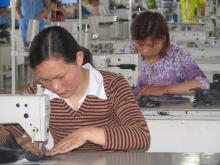
THE APRIL 24 collapse of a garment factory near Dhaka, Bangladesh, killed more than 1,125 people. That tragedy followed a fire that killed 112 last November at a factory making goods for companies including Walmart. According to the International Labor Rights Forum, at least 1,800 garment workers in Bangladesh have died in fires or other factory disasters since 2005. The collapse near Dhaka is the largest disaster in that time and the one that has gotten global attention.
As a Dominican Catholic sister and member of Catholic Scholars for Worker Justice, I approach reflection on such a disaster from the foundation of Catholic social teaching. Each of the social principles below relates to the situation in Bangladesh and challenges us to reflect on our own regard for those who provide our clothing.
- Life and dignity of the human person. Story after story of the people who work in the garment industry shows the lack of respect for workers. Long hours, few to no breaks, prevalent verbal, physical, and sexual abuse, and now the collapse of a factory—do we need any more proof that human life is held in so little regard? Many years ago, Cardinal Joseph Bernardin called for an understanding of “respect life” as inclusive of human life “from womb to tomb.” Our upholding of life must include working toward changing factory conditions so that a debacle such as Dhaka never happens again.
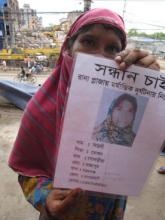
Just two more months, the daughter promised her mother by telephone, then she’d be home for good.
Making shirts in this packed metropolis of 12 million people, Sheuli Akhter, 20, made decent money — about $140 a month — by the impoverished standards of rural Bangladesh. But she missed the family benefiting from the wages of her hard work.
Her mother, Ranjana Akhter, was found sobbing near the rubble of the Rana Plaza factory where her daughter worked, days after the eight-story complex collapsed and killed more than 1,100 workers. Viewing dozens of corpses a day, the 35-year-old woman still hoped her daughter had somehow survived.
The victims retrieved from the debris were crushed and unrecognizable in the South Asian heat.
“I am looking for her body, but they are all decomposed now. It’s getting harder to identify,” said Ranjana Akhter, tears falling from her eyes.
The scale of the mismanagement and breadth of the human tragedies in Bangladesh powerfully illustrated what years of abuse, inhumane conditions, and unthinkable danger could not: Garment workers in Third World countries take enormous risks to earn a living in Bangladeshi-owned companies that produce clothing for Western retailers.
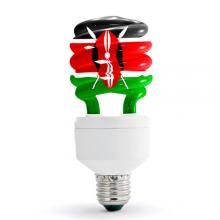
Is there anything more important to us than the air we take into our lungs every few seconds? The water that keeps us and all living things going? The soil that roots our food and our communities? Or the weather patterns that knit these elements all together?
What happens when these things begin to deteriorate — or rapidly change their behavior?
That is why I’m in Kenya with Cal DeWitt — well known Christian environmental scientist and teacher — and a group of eight others from the US and Canada: scientists, teachers, activists, and a film-maker.
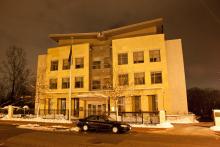
Several atheist protests planned for Thursday outside Bangladeshi embassies and consulates were postponed in the wake of Wednesday’s building collapse that killed at least 244 people in that country’s capital, Dhaka.
A coalition of secularist advocacy groups originally planned to rally in London and several cities in the U.S. and Canada over the arrests of four atheist bloggers who were charged with blasphemy in the officially Muslim nation.
An international consortium of nonbelievers is planning rallies Thursday outside Bangladeshi embassies and consulates to demand the release of several Bangladeshi bloggers who were arrested on charges of blasphemy.
The rallies are in support of four Bangladeshi men arrested earlier this month for “hurting religious sentiments,” a crime tied to an 1860 law that can carry up to 10 years in jail.
The four men — all bloggers — staged a sit-in at a public square demanding a ban on the country’s largest Islamic political party; Islam is the official state religion in Bangladesh.
The Atlantic profiles a new documnetary called Bangladesh: On The Frontlines of Climate Change:
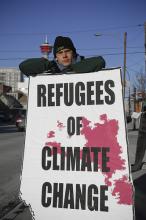
Climate change affects the poorest the hardest. Most things do. In the parts of the world where climate change is most prevalent, it is those who have done the least to cause it that are bearing the brunt of its effects.
It is the Malawian farmer whose crops have failed because the seasonal rains didn’t start at the usual time. It’s a Bangladeshi who can see the sea-levels rising around her town year after year, and has nowhere to go. It’s even an American family whose food bill grows ever larger because of the stresses that a changing climate is having on food security worldwide.
These are neither the people nor the organizations that have spent decades turning a blind eye to their responsibility as good stewards of our environment. They are not the people who, in the face of more and more extreme weather patterns, turn an issue of human survival into an ideological war.
It is for them that we must adapt.